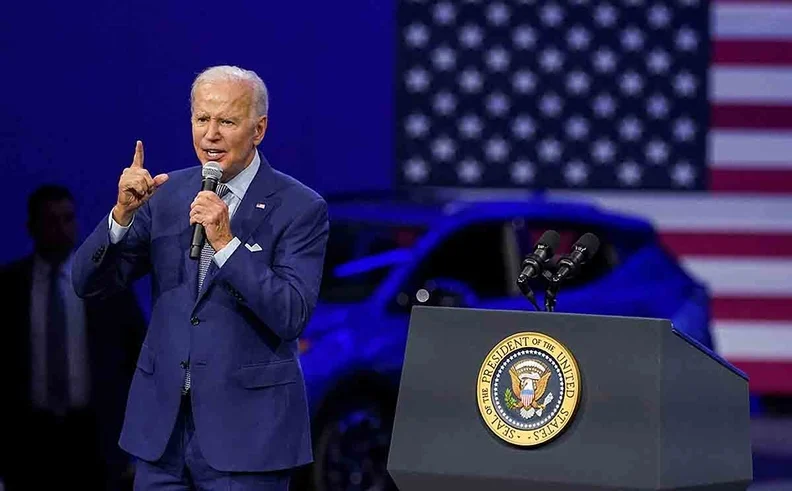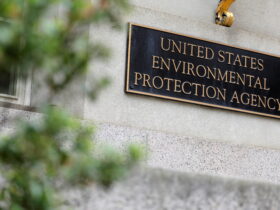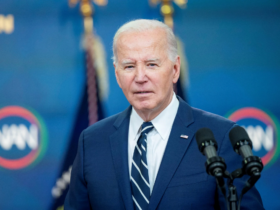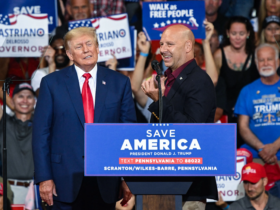The Biden administration, addressing concerns over the security of national data, intends to conduct an investigation into the “smart cars” manufactured in China that may record confidential information about their American users.
Regulatory Measures
The exploration might end up coming up with regulations that try to block potential applications of complex technology in electric automobiles and what is referred to as connected vehicles, which are characteristic of tracking individuals and their information. The officials have a fear that publicly available assistance systems may be used as a covert spy tool to monitor Americans.
This is in contrast with the simple act of barring Chinese imports, but still, President Joe Biden showed a different perspective on protecting Americans’ data by taking the currently unavailable unprecedented measures, as reported by The Associated Press.
“China is determined to dominate the future of the auto market, including by using unfair practices,” Biden said in a statement Thursday. “China’s policies could flood our market with its vehicles, posing risks to our national security. I’m not going to let that happen on my watch.”
Biden and other officials pointed out that China has placed extensive limitations on foreign automobiles, including American cars.
Concerns Over China’s Trade Practices
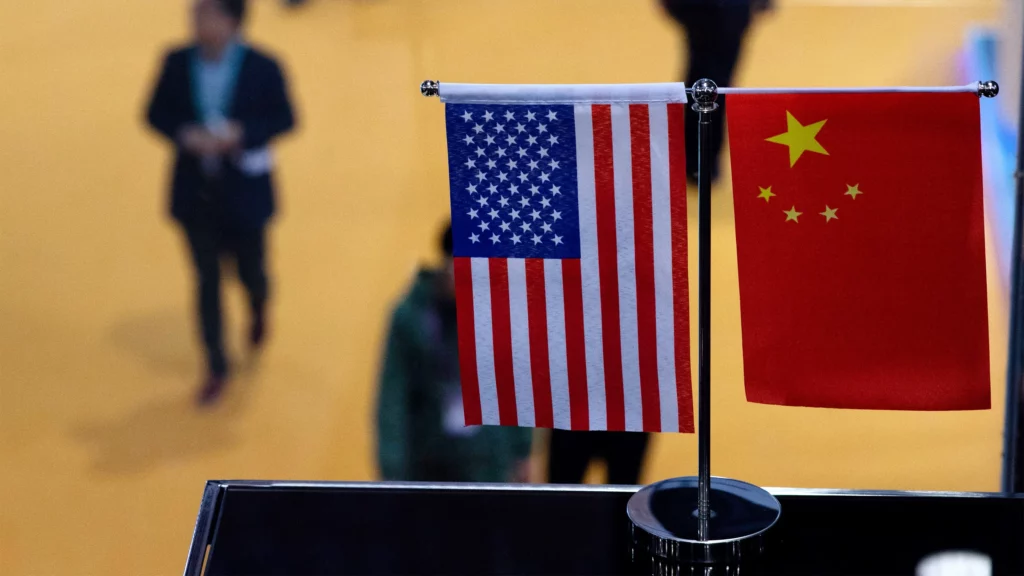
According to Gina Raimondo, the Secretary of Commerce, connected cars “are like smartphones on wheels” and present a significant risk to national security.
“These vehicles are connected to the internet. They collect huge amounts of sensitive data on the drivers — personal information, biometric information, where the car goes,” she told reporters late Wednesday. “So, it doesn’t take a lot of imagination to figure out how a foreign adversary like China, with access to this sort of information at scale, could pose a serious risk to our national security and the privacy of US citizens.”
Data collection is not the only concern, she and other officials said. Connected vehicles, as well as bad actors, could also be used or tampered with remotely, as reported by The Associated Press.
“Imagine if there were thousands or hundreds of thousands of Chinese-connected vehicles on American roads that could be immediately and simultaneously disabled by somebody in Beijing,” Raimondo said. “So, it’s scary to contemplate the cyber risks and espionage risks that this pose.”
Tariffs as a Barrier
Chinese cars are yet to be imported into the United States, the decisive factor being the steep tariffs the formal part of the US imposes on imported Chinese vehicles. However, officials are worried that the tariffs are merely tools to deal with a bigger problem. Some Chinese companies introduce their production processes in 3rd countries near the USA in order to bypass US tariffs.
According to a plan announced Thursday, the Commerce Department is going to issue an advanced notice of proposed rulemaking so as to conduct an investigation into safety risks of all vehicles having connections to China and the rest of the world presupposed as challenging to the US national security.
The White House requires business information from the auto sector and the public regarding the nature of the hazards and what steps might be taken to lower them; Commerce intends to find out. Next, officials will detail what “countries of concern,” such as Russia, and especially China and Iran, might mean for the use of technology in Chinese cars.
“We’re doing it now before Chinese manufactured vehicles become widespread in the United States and potentially threaten our privacy and our national security,” Raimondo said.
This investigation is going to be the first one which the Commerce Department’s Bureau of Industry and Security has taken pursuant to executive orders that President Biden issued in his effort to save domestic information and communications technology from national security risks.
Electric cars and other vehicles will continue to resort to these new technologies that are aimed at making navigation, assistance, and fuel and emission control systems more efficient. The cars are constantly communicating with personal devices, other vehicles, the US infrastructures, and their manufacturers, thus posing national security utilities, as the White House pointed out.
Concerns Over Chinese Automakers
Trump’s high tariffs and Obama’s keeping them for a while are having a massive effect on keeping Chinese automakers from penetrating the American market. However, the automotive industry and government officials are concerned that Chinese automakers will decide to bear the additional costs as China is shifting more from imports to exports. Chinese automobile producers are seeking for more opportunities to assemble their vehicles abroad, which has been followed by the recent plan by EV giant BYD to locate its first overseas plant in Europe.
Ford’s chief executive, Jim Farley noted that the company and its counterparts will have a hard time taking advantage of the EV market as compared to Chinese automakers, who have managed to penetrate Europe a bit with 10% of EVs two years ago and 10% at the moment, as reported by The Associated Press.
John Bozzella, the president of Automotive Innovation Alliance, the key automakers represent group, commented that the possible proposed environmental regulation could be a “chance” for China to gain “a stronger foothold in America’s electric vehicle battery supply chain and eventually our automotive market.”
A year ago, the European Union started a trade investigation by which it thought about increasingly importing products from China particularly in electric vehicles. The investigation is ongoing.

